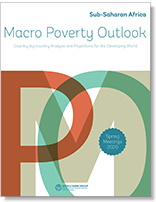EC Library Guide on country knowledge: Namibia: Selected publications
Selected publications from international organisations
- Building agricultural resilience to natural hazard-induced disasters: Insights from country case studies

OECD and Food and Agriculture Organization of the United Nations, 2021.
Natural hazard-induced disasters (NHID), such as floods, droughts, severe storms, and animal pests and diseases have significant, widespread and long-lasting impacts on agricultural sectors around the world. With climate change set to amplify many of these impacts, a “business-as-usual” approach to disaster risk management in agriculture cannot continue if we are to meet the challenges of agricultural productivity and sustainability growth, and sustainable development. Drawing from seven case studies – Chile, Italy, Japan, Namibia, New Zealand, Turkey and the United States – this joint OECD-FAO report argues for a new approach to building resilience to NHID in agriculture.
It explores the policy measures, governance arrangements, on-farm strategies and other initiatives that countries are using to increase agricultural resilience to NHID, highlighting emerging good practices. It offers concrete recommendations on what more needs to be done to shift from coping with the impacts of disasters, to an ex ante approach that focuses on preventing and mitigating the impacts of disasters, helping the sector be better prepared to respond to disasters, and to adapt and transform in order to be better positioned for future disasters.
- Macro poverty outlook for Sub-Saharan Africa: Country-by-country analysis and projections for the developing world

World Bank, 2023.
The Macro Poverty Outlook (MPO) analyzes macroeconomic and poverty developments in 47 developing countries in Sub-Saharan Africa. The report is released twice annually for the Spring and Annual Meetings of the World Bank and the International Monetary Fund. The MPO consists of individual country notes that provide an overview of recent developments, forecasts of major macroeconomic variables and poverty during 2023-2025, and a discussion of critical challenges for economic growth, macroeconomic stability, and poverty reduction moving forward.
- Namibia: 2022 Article IV consultation-press release; staff report; and statement by the Executive Director for Namibia
International Monetary Fund. African Dept., 2022.
Namibia has been severely hit by the COVID-19 pandemic but has started to gradually recover. After a sharp contraction in 2020, with worsening fiscal imbalances and socio-economic disparities, a modest recovery began in 2021 and strengthened in the first half of 2022. Mining activity rebounded while manufacturing and tertiary sector activities gradually started to recover. Inflationary pressures have increased, as higher international oil and food prices due to Russia’s war in Ukraine were passed-through. The political context remains stable, with elections scheduled in 2024.
- Namibia: Request for purchase under the rapid financing instrument - press release; staff report; and statement by the Executive Director for Namibia
International Monetary Fund. African Dept., 2021.
The COVID-19 pandemic has sharply deteriorated Namibia’s short-term macroeconomic outlook, giving rise to urgent balance of payments (BOP) and fiscal financing needs. After an initial outbreak peaked in August, a second wave hit in late 2020. Containment measures have negatively impacted domestic consumption and economic activity, weighing on tax revenues collection. Furthermore, worsening global conditions have hindered mining production and exports, tourism receipts, and investment inflows. The economy is expected to have sharply contracted by 7.2 percent in 2020, and the recovery is set to remain subdued in 2021.
- National consultations on solutions to promote media viability while preserving media independence: Consultations on media viability in Brazil, El Salvador, Indonesia, Jamaica, Lebanon, Namibia, Nigeria, Pakistan, Senegal and Tunisia
Free Press Unlimited, S. Nijhof, M. Pavičić. 2022.
This report provides summarised transcripts of country-based consultations on media viability with stakeholders in the media sector. The national consultations draw on the knowledge exchanges and research provided by UNESCO and The Economist Intelligence Unit (EIU), and aim to explore the feasibility of possible solutions to preserve media viability without compromise to editorial independence and the integrity of journalism. The national consultations were organised and summarised by Free Press Unlimited (FPU).
- UNESCO Namibia: Annual report, 2022
UNESCO Office in Windhoek, 2023.
UNESCO is a specialized agency of the United Nations (UN) which contributes to interventions in Namibia aimed at addressing national priorities and gaps in the country’s pathway towards meeting the Sustainable Development Goals (SDGs) and leaving no one behind. These interventions highlight UNESCO’s core areas of competencies namely, Education, Science, Social and Human Sciences, Information and Communication, and Culture.
- Last Updated: May 6, 2025 9:40 AM
- URL: https://ec-europa-eu.libguides.com/country-knowledge-namibia
- Print Page


